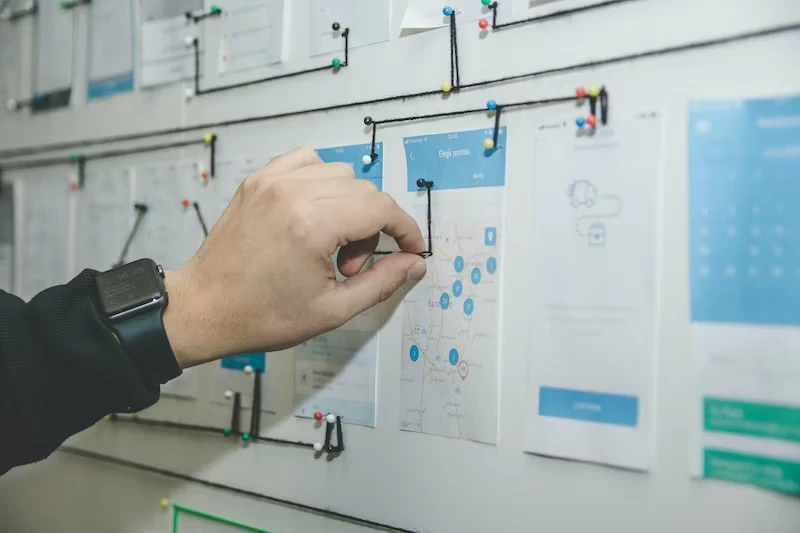
Step aside, side-hustle: we’re entering the age of the “multi-hustle”. A new report from global technology platform Intuit QuickBooks reveals nearly a quarter (23%) of Millennial & Gen-Z sole traders are either currently running or want to run multiple businesses. Around 16% of Gen-Z sole traders are already “multi-hustlers” – compared to just 5% of Gen X and 3% Baby Boomers – and it’s these digitally-savvy younger business owners who are outperforming their counterparts on revenue too.
The findings come as part of a new report from Intuit QuickBooks and Oxford Economics – The Sole of the UK – which explores the changing face of the sole trader community in the UK as a result of the pandemic. Sole traders represent more than half (53%) of all private sector businesses, with 2.9 million sole traders in the UK in 2021.
Digitally-led, younger business owners enjoy strongest annual revenues
As well as running multiple businesses, young sole traders are also most likely to build their business around digital.
QuickBooks’ findings show businesses led by Gen Z sole traders are most likely to centre their business around digital technology (73%), compared to 55% of Millennials, 46% of Gen X and 36% of Baby Boomers.The analysis shows a clear connection between a digital approach and annual revenues – a net balance of -2% of those with digital at their core experienced an increase in revenues over the past year, vs. -28% amongst businesses where technology plays no role. Those with digitally-focused businesses are also more likely to have stronger expectations for revenue increases over the next year.
Chris Evans, Vice President and Country Manager UK at QuickBooks, comments:
“We’re seeing more ambitious sole traders than ever before, borne out of the most difficult business landscape in over a decade – the ‘sole’ of the UK is agile, adaptable and driven by digital. While “multi-hustlers” are coming to the fore, many traditional, established sole trader businesses have also been able to harness new opportunities – especially those created by the increased uptake of digital during the pandemic.”
Seasoned multi-hustler, entrepreneur, investor, and author Steven Bartlett has spoken at QuickBooks Connect UK this week.
Commenting on the findings, he says: “I’m a tried and tested “multi-hustler” – I love wearing different hats, exploring new passions, and taking on new opportunities. The trick when you are going it alone is having the right tools to be your team when you need it, to help with finances, marketing, and setting up new businesses.”
Younger generations spurring on post pandemic recovery
Oxford Economics estimates sole traders contributed £112 billion to the UK economy in the year to 2021. To give a sense of scale, this is equivalent to 2.6 times that produced by all the people employed in Manchester. This comes despite sole traders being more likely to have experienced a decrease (40%) in revenues over the past year than an increase (28%), as the continued lockdowns of 2021 impacted businesses’ bottom line.
But younger generations bucked this trend, with a net balance of +23% of Gen-Z sole traders experiencing an annual increase in revenues, while Millennials were just as likely to have experienced an increase as a decrease. Gen X (-24%) and Baby Boomers (-33%) fared noticeably worse. The findings are a good indicator of how younger generations will play a key role in post pandemic economic recovery.
A core part of our analysis is based on a new primary piece of research conducted in February 2022. Censuswide surveyed 1,000 sole traders. Results are broken down into four age groups: Gen Z (aged between 16-23 years old); Millennials (aged between 24-42); Gen X (aged 43-54); and Baby Boomers (aged over 55 years old). We also draw on the BEIS Small Business Survey data on sole traders and other official datasets including the BEIS Business Population Estimates. For full methodology, please visit the Appendix of the report.
Defined in this study to be businesses wholly owned by one person with zero employees.
When it comes to the technologies most widely used by sole traders, financial technologies – digital payments (50%); self-assessment tax returns (48%); accounts (42%) and digital invoices (39%) – are the four most popular choices.
Gen Z sole traders are particularly likely to use digital technology to monitor their business’ cashflow and overall financial performance, at 35% compared to 23% for all age groups. Other uses of technology span from marketing and advertising (28%) and developing new products and services (16%).
While wanting to be your own boss (51%) remains the most popular reason for setting up a new venture, many sole traders are starting businesses to have a better work/life balance (43%) or pursue a passion or interest (27%). The latter is increasingly popular among those who set up businesses in the past year (34%) and Gen-Z, who ranked this just as important as being your own boss (31% vs. 32%).
Based on £54 billion generated by sole traders themselves, £13 billion stimulated by spending with suppliers, and £44 billion contributed by remuneration-financed consumer spending (totals £112 billion when rounding is taken into consideration).







